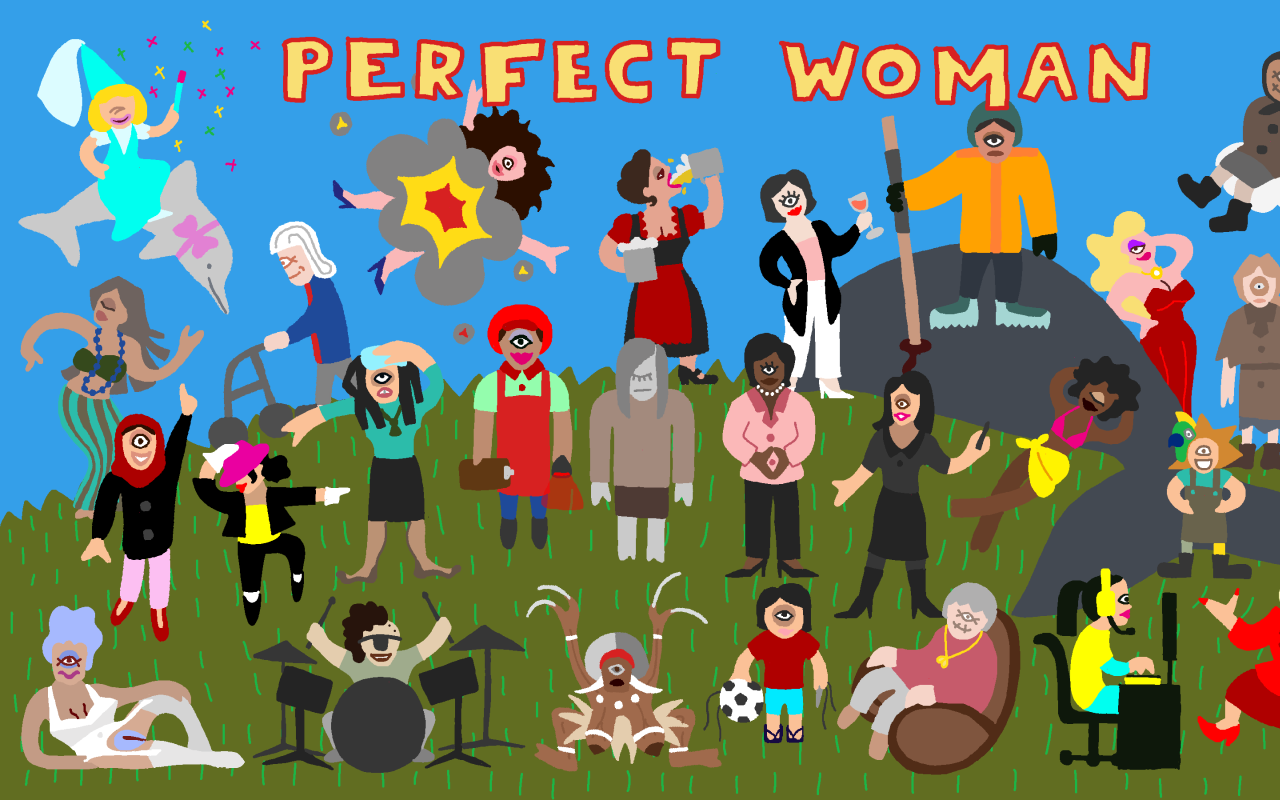Perfect Woman
Lea Schönfelder, Peter Lu – 2014
What does it take to become a Perfect Woman? In Lea Schönfelder and Peter Lu’s game, the players strive for perfection and bend over backwards in order to fulfill various – playfully exaggerated – female role models.
The metaphor is being taken literally in this case: the players’ actual movements are being captured by a Kinect camera and synchronized with prearranged poses on the screen. A choreography is created by the players’ bending and contorting in the attempt to copy the perfect model – the ideal mother, the exotic call girl, the successful foreign minister, or the professor.
Starting with the depiction of an embryo in the womb, the game presents the various stages of a woman’s life on seven different levels and offers the players a choice of roles to play at the beginning of each phase. That is how the players assemble their lives and create a perfect biography. […] And despite the fact that the game focuses exclusively on female roles, this struggle of perfection is not limited to women. The game addresses social stereotypes as well as identity and gender constructs in general. Men are surrounded just as much as women by idealized role models that they are told to fulfill. »Perfect Woman« was inspired by Lea Schönfelder’s life situation during her residency at the UCLA Game Lab in Los Angeles. This also uses some of the questionnaires from women’s magazines as a template – »Are you the perfect mother?« or »Are you good in bed?« as a template.
Text by Sophie Rau und Stephan Schwingeler, published in »Games and Politics. An interactive exhibition by the Goethe-Institut in cooperation with ZKM I Center for Art and Media Karlsruhe«, exhibition catalogue, Goethe-Institute, Munich 2016.
